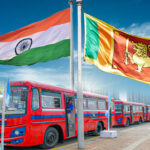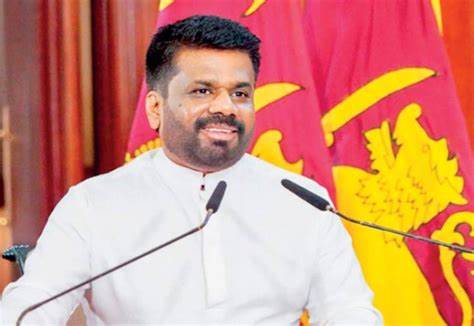
Wide Angle Focuses on President AKD’s Leadership under the Spotlight
- CNL Reporter
- January 13, 2025
- Weekly Political Review
- President AKD
- 0 Comments
Weekly Poltical Review
Govt’s Challenges, Reforms, and Global Diplomacy Outline Shape 2025
By Rohana Jith
President Anura Kumara Dissanayake (AKD) and his Janatha Vimukthi Peramuna (JVP)-led National People’s Power (NPP) Government are navigating a critical juncture for Sri Lanka.
This year marks a decisive period that will define not only AKD’s political legacy but also the nation’s path forward amid economic recovery, political reorganization, and social reform.
How President AKD steers his government will determine the future of his leadership, his party, and the people of Sri Lanka.
While tackling a challenging economic recovery program, Sri Lanka must also manage intricate geopolitics and ensure the equitable distribution of social welfare and justice.
The Clean Sri Lanka programme, the AKD administration’s flagship initiative, highlights the complexity of these objectives. Its success—or failure—will serve as a litmus test for the government’s commitment to transparency and public engagement.
Clean Sri Lanka: Challenges of Implementation
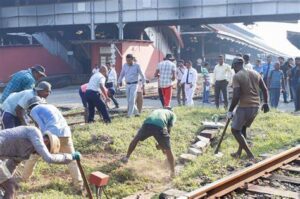
Launched on January 1, the Clean Sri Lanka programme aims to address environmental degradation while fostering public discipline. However, its execution has not been without criticism.
The programme’s initial stages saw public skepticism, with comparisons being drawn to the voluntary clean-up efforts initiated under former President Gotabaya Rajapaksa in 2019, which eventually failed to sustain momentum.
One of the key criticisms is the lack of prior public engagement and awareness. Critics argue that a comprehensive campaign to explain the programme’s objectives and long-term benefits could have garnered greater public support.
Allegations of financial mismanagement during the launch also marred its reception. Opposition MP Chamara Sampath Dasanayake accused the government of spending Rs. 7 million without adhering to proper procurement procedures, citing payments for a theme song, event ushers, and other expenses.
Chief Government Whip Dr. Nalinda Jayatissa countered these claims, clarifying that only Rs. 900,000 had been officially approved and asserting that the allegations were based on unverified quotations rather than actual expenditures. This controversy underscores the need for transparency and accountability as the programme moves forward.
Economic Focus: Budget 2025 and IMF Dependencies
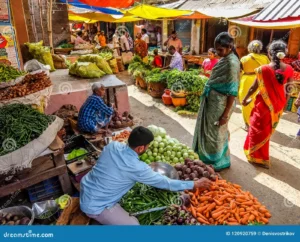
A cornerstone of the AKD administration’s agenda is Budget 2025, which is expected to set the tone for Sri Lanka’s economic policies.
With total expenditures projected at Rs. 4.62 trillion, the government faces the challenge of balancing recurrent and capital spending while adhering to fiscal constraints.
The budget’s success is critical to securing the next tranche of funding from the International Monetary Fund (IMF) under the Extended Fund Facility (EFF).
The Second Reading of the budget is scheduled for February 17, with a week-long debate culminating in a decisive vote on February 25. Public and international scrutiny of this budget will be intense, given its implications for Sri Lanka’s economic recovery.
Strengthening Ties with China
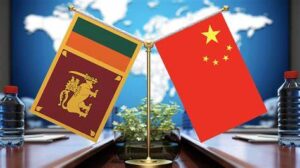
In a bid to bolster international partnerships, President AKD is set to embark on a state visit to China from January 14-17, accompanied by key ministers. During the visit, he will meet Chinese President Xi Jinping and Premier Li Qiang to discuss economic recovery, investment, and debt restructuring.
Seven Memoranda of Understanding (MoUs) are expected to be signed, covering areas such as agriculture, fisheries, renewable energy, and media cooperation. Highlights include solar power projects, new technologies for the agricultural sector, and initiatives to digitalize state-run media.
Additionally, discussions will focus on reviving Chinese-funded road development projects and exploring housing schemes for fishermen under the fisheries sector MoU.
Business forums with Chinese companies aim to attract further investments, while Sri Lanka’s continued endorsement of the “One China” policy reinforces its alignment with Chinese interests.
Media and Tourism Partnerships

Among the MoUs to be signed with China are agreements linking Sri Lankan and Chinese media institutions. These collaborations aim to modernize Sri Lanka’s media infrastructure and promote the country as a prime destination for Chinese tourists.
The Sri Lanka Tourism Promotion Bureau will partner with China Media Group to leverage advanced technology in tourism marketing, while an agreement for the export of chicken meat to China signifies the diversification of trade partnerships.
India’s Role in Sri Lanka’s Recovery
India has also demonstrated strong support for Sri Lanka’s recovery. The Indian government recently converted over $100 million in loans into grants, including funding for infrastructure projects like the Kankesanthurai Harbour rehabilitation and the Maho-Anuradhapura Railway Signaling Project. Indian High Commissioner Santosh Jha highlighted India’s total grant assistance to Sri Lanka, which now exceeds $780 million.
President AKD has extended an invitation to Indian Prime Minister Narendra Modi to visit Sri Lanka this year, reflecting efforts to maintain robust ties with both regional powers. Balancing relationships with India and China remains a strategic priority for the AKD administration.
Navigating Challenges and Seizing Opportunities
As Sri Lanka enters a transformative phase under President AKD, the government faces immense challenges, from addressing domestic criticisms to navigating global geopolitics. The Clean Sri Lanka programme serves as a microcosm of these challenges, highlighting the importance of transparency, public engagement, and effective implementation.
Meanwhile, Budget 2025 and international partnerships with China and India will shape the country’s economic trajectory. With the world watching, the AKD administration must deliver on its promises to secure a sustainable and equitable future for Sri Lanka.
